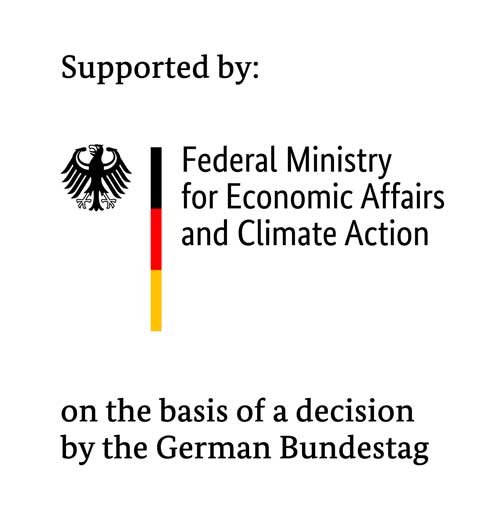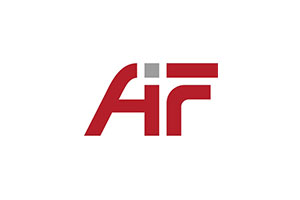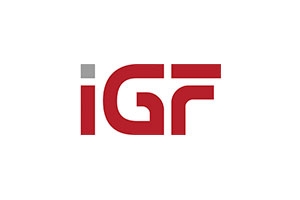Barrier-effective monomaterial packaging using nanoparticles
To date, flexible plastic films that provide a strong barrier against oxygen or water vapor consist of several layers that block these gases. These multi-material films are mostly used for technical applications and in the food industry. The downside to these films is that the materials are impossible to separate during the mechanical recycling process and therefore cannot be recycled.
Recyclable barrier packaging made from nanocomposites
The goal of the CORNET project BarriFlex is to develop a high-performance, low-cost barrier film, which has a low carbon footprint, for flexible packaging and encapsulation based on a single material (monomaterial solution). According to the German Packaging Act, a monomaterial is a material that contains a maximum of 5% (of the total weight) foreign materials. To provide a protective barrier against these gases, a mix of nanoparticles is integrated into selected coatings and adhesives. These particles act as an obstacle, stopping molecules from permeating the film by reducing their free volume in the matrix, extending their diffusion paths or absorbing water vapor.
Small but mighty
Fraunhofer IVV combines nanoparticles and coatings in a clever process: A high shear mixing process is used, which ensures that the various nanoplatelets — from commercial nanoclays to eco-friendly cellulose nanocrystals — are dispersed in a homogenous and oriented manner. Preliminary formulation benchmarks and the associated barrier performance are determined using computational tools. The barrier layer is then applied to a polymer substrate and laminated to a sealing film for food packaging applications. The functionalization of the nanoparticles prevents migration issues by fixing them within the matrix. For encapsulating flexible photovoltaic modules, the monolayer barrier acts as a preliminary encapsulation layer, limiting the number of additional layers needed to reach the desired permeation level. In both applications, state-of-the-art barrier performance must be achieved to demonstrate the added value of the concept.
Project term: |
2019 to 2021 |
Project management |
Federation of Industrial Research Associations (via Industrial Association for Food Technology and Packaging), Federal Ministry for Economic Affairs and Climate Action |
Project partners: |
|
 Fraunhofer Institute for Process Engineering and Packaging IVV
Fraunhofer Institute for Process Engineering and Packaging IVV



